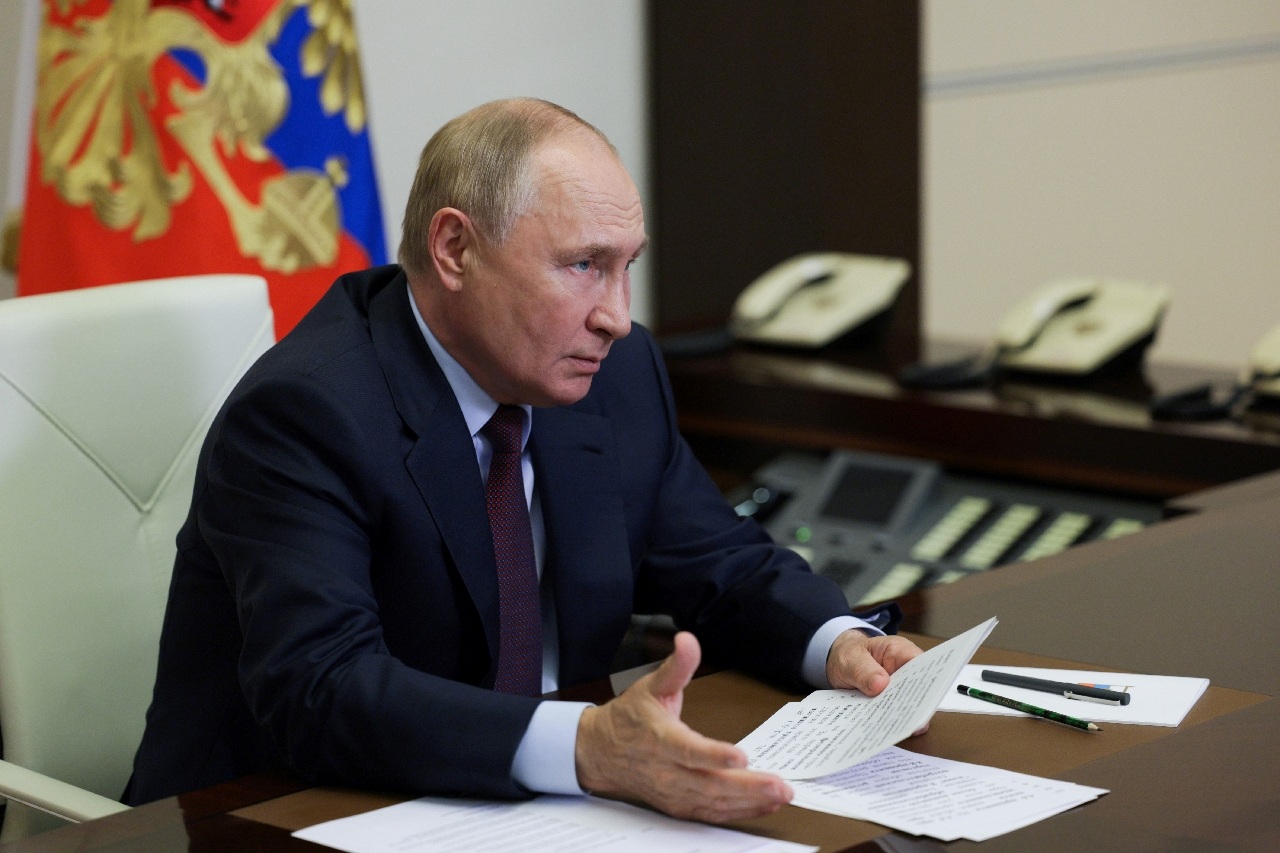The Kremlin said Friday it was not worried that Mongolia could arrest President Vladimir Putin during his visit there next week, despite the International Criminal Court saying the member country had an “obligation” to detain the Kremlin leader.
Putin will travel to Mongolia on Tuesday, his first trip to an ICC member since The Hague-based court issued a warrant for his arrest over the illegal deportation of Ukrainian children in March 2023.
“There are no worries, we have a great dialogue with our friends from Mongolia,” Kremlin spokesman Dmitry Peskov said.
Asked if Moscow had discussed the arrest warrant with Ulaanbaatar ahead of Putin’s trip, he said: “All aspects of the visit were carefully prepared.”
Russia does not recognise the jurisdiction of the ICC.
Court spokesman Fadi el-Abdallah told reporters on Friday that states that have signed up to the Rome Statute that underpins the Court, “have the obligation to cooperation.”
Though there is little the court can do if Mongolia does not comply.
Ukraine on Friday urged Mongolia to execute the warrant when he visits.
“The Ukrainian side hopes that the government of Mongolia is aware of the fact that Vladimir Putin is a war criminal,” Kyiv’s foreign ministry said.
“We call on the Mongolian authorities to execute the binding international arrest warrant and transfer Putin to the International Criminal Court in The Hague.”
Mongolian authorities have not yet commented on the issue.
Deportation of children
The ICC issued an arrest warrant for Putin in March 2023.
It said there were “reasonable grounds to believe” that he “bears responsibility for the war crime of unlawful deportation” of Ukrainian children — living in areas of the country that Russian forces took control of — to Russia.
Russia has dismissed the warrant as having no consequence, but Putin has not travelled to an ICC member since.
The Kremlin also said its ally Armenia joining the court earlier this year — meaning it would be obliged to arrest Putin if he travels there — was an “unfriendly step.”
Mongolia has been a member of the ICC for more than two decades, having ratified the Rome Statute in 2002. Last year the first Mongolian judge was elected to the court.
Under the treaty, any of the 124 ICC member states are obliged to execute arrest warrants if subjects set foot on its territory.
Limited options
“The ICC relies on its States Parties and other partners to execute its decisions including in relation to arrest warrants. States Parties to the ICC Rome Statute have the obligation to cooperate,” spokesman el-Abdallah said Friday in response to questions about Putin’s upcoming visit.
But the ICC has no police of its own and little it can do to force Mongolia’s hand, or punish it if it does not comply.
Should Mongolia choose not to arrest Putin, ICC judges can report the matter to the ICC’s managing body called the Assembly of States Parties, which meets once a year.
Such referrals in the past have had limited success, with the assembly’s options confined mainly to verbal sanctions against errant states.
Of the 49 arrest warrants issued since 2002, only 21 have resulted in detentions and court appearances.
Some top leaders wanted by the ICC have thumbed their noses at the court and travelled to member countries with impunity.
Former Sudanese strongman Omar al-Bashir, who was toppled in 2019, has travelled to member states such as Jordan and South Africa without consequences even though he is the subject of two ICC arrest warrants.
Moscow has also brushed off the warrant but Putin — who had already vastly scaled down foreign visits since launching the Ukraine offensive in 2022 — has not travelled to an ICC member state since the warrant was issued.
Last year he called off a visit to a BRICS summit in South Africa, which is an ICC member, after internal and external pressure on Pretoria to arrest the Russian leader should he attend the conference.
Putin is visiting Mongolia for the 85th anniversary of a battle between Japanese and Soviet and Mongolian forces during Japan’s occupation of nearby Manchuria.
Sandwiched between Russia and China, Mongolia was under Moscow’s sway during the Soviet era. Since the Soviet collapse in 1991, it has sought to keep friendly relations with both the Kremlin and Beijing.
The country has not condemned Russia’s offensive in Ukraine and has abstained during votes on the conflict at the UN.
burs/yad
